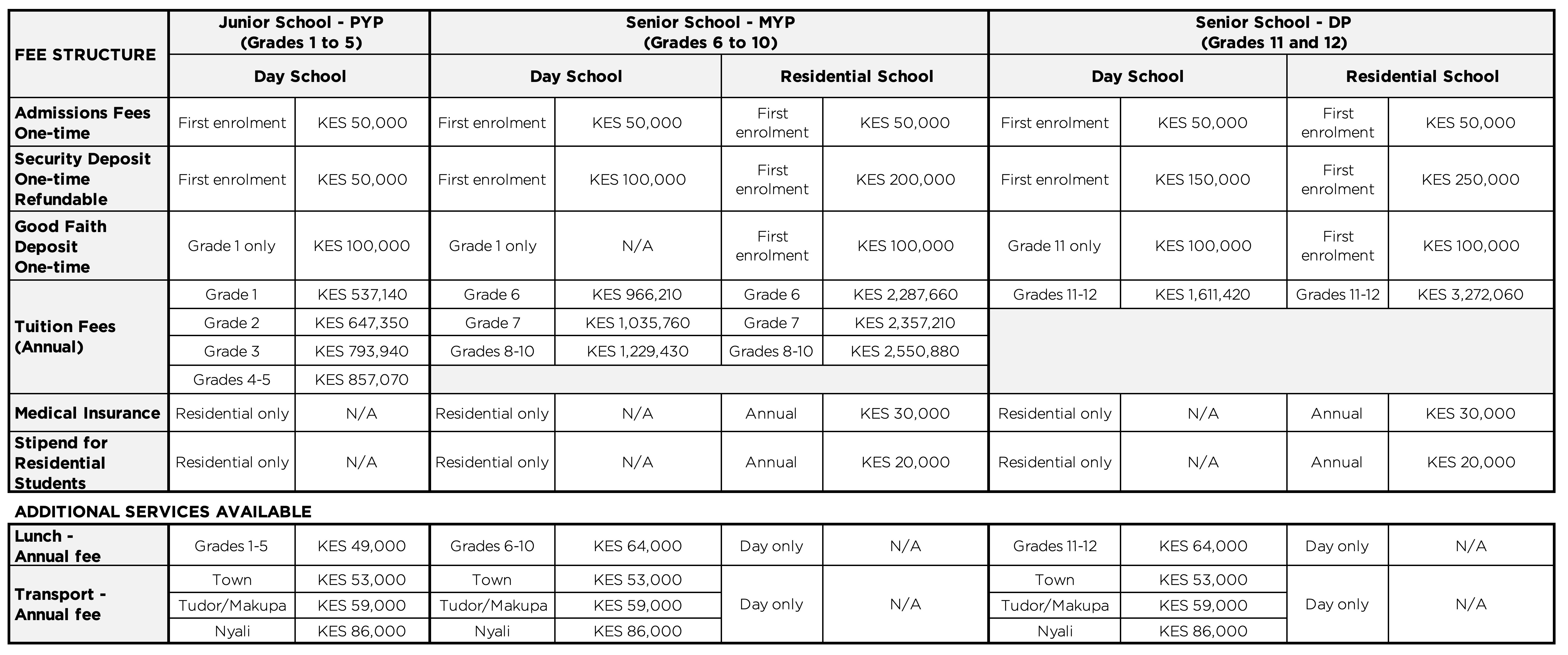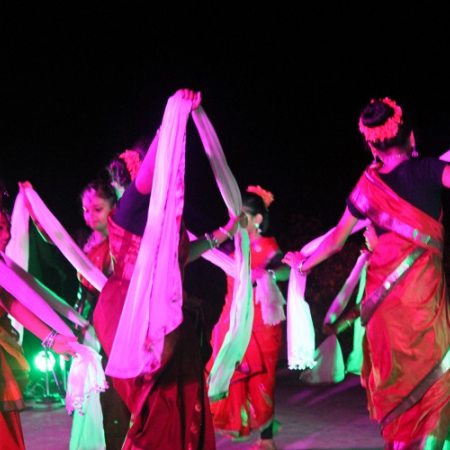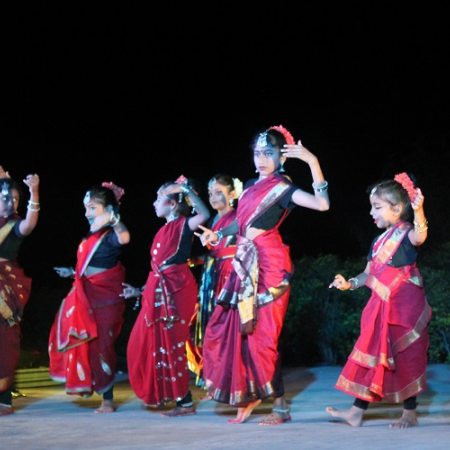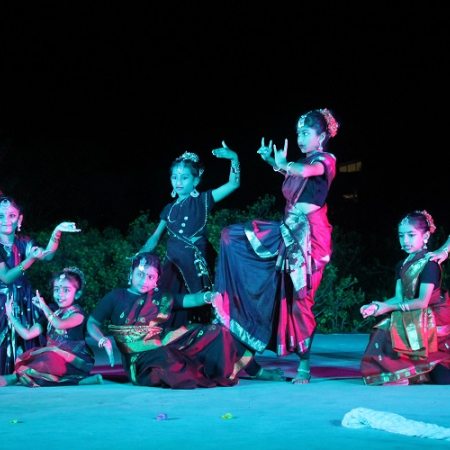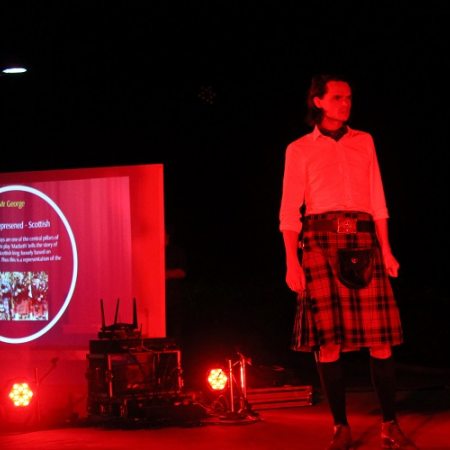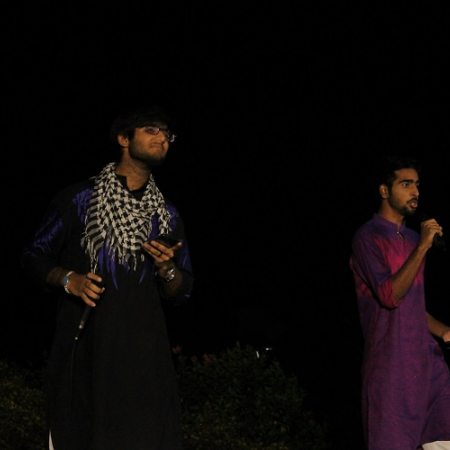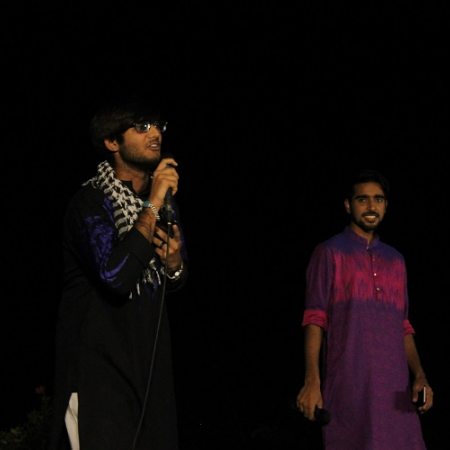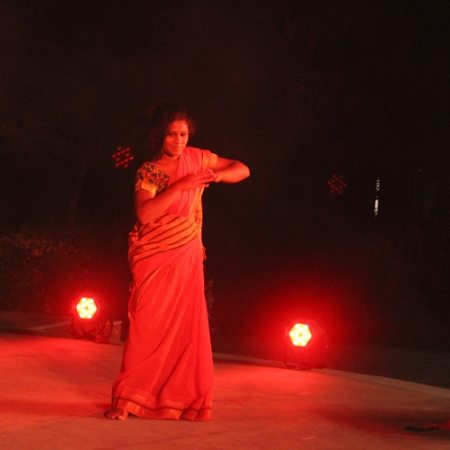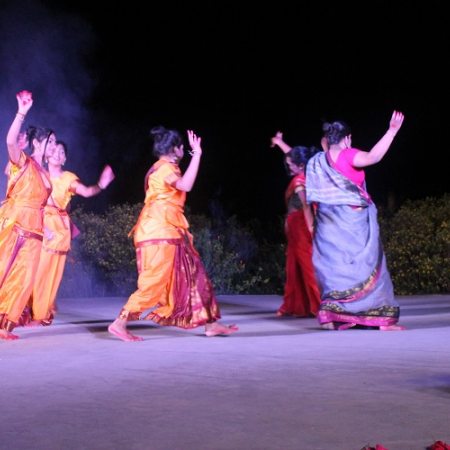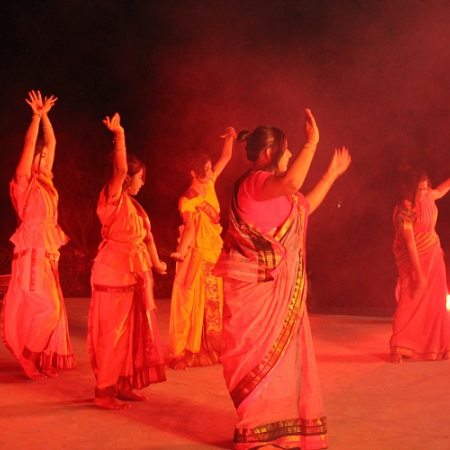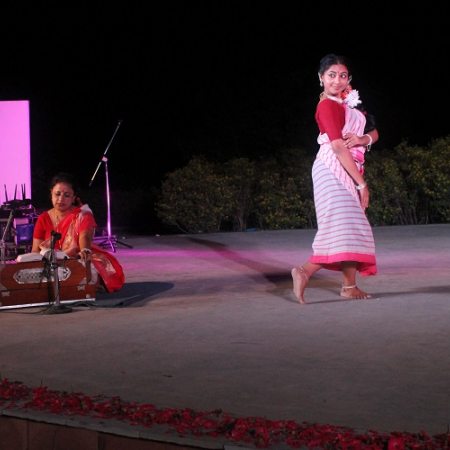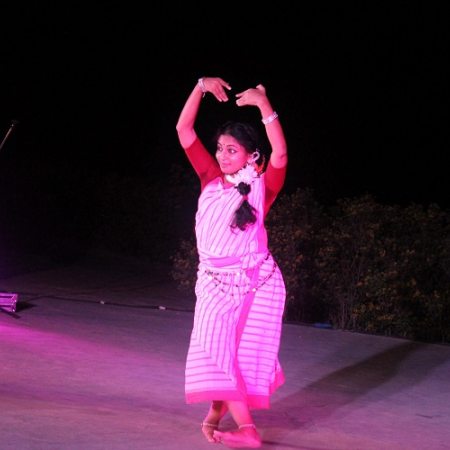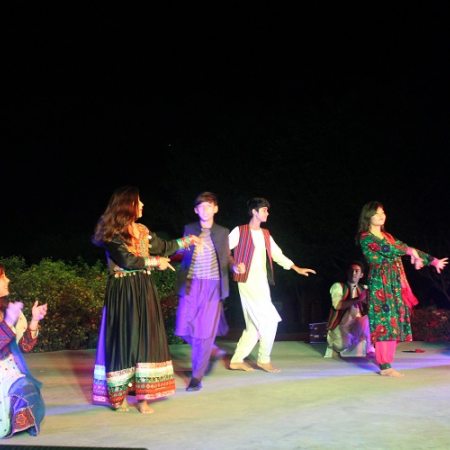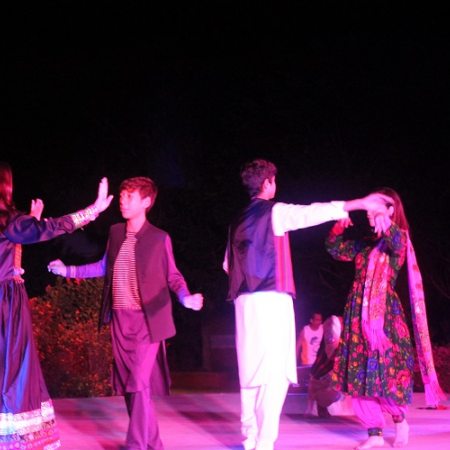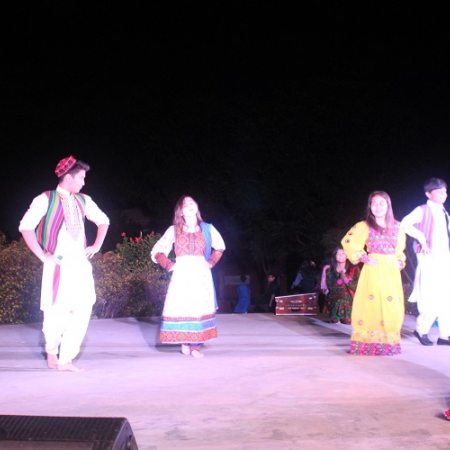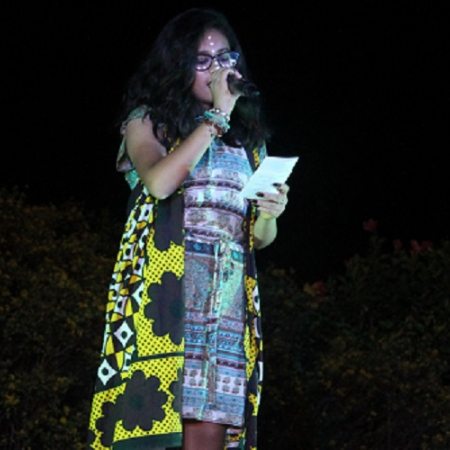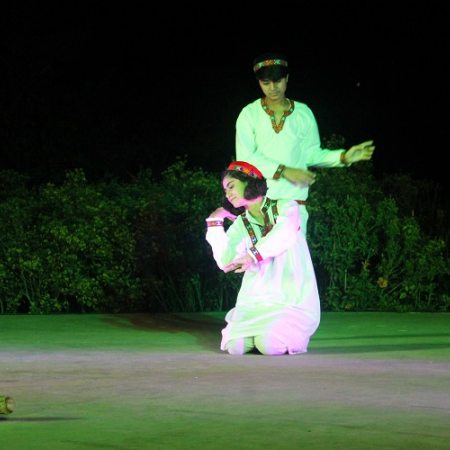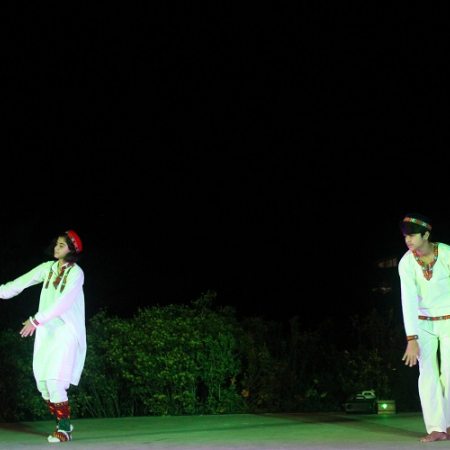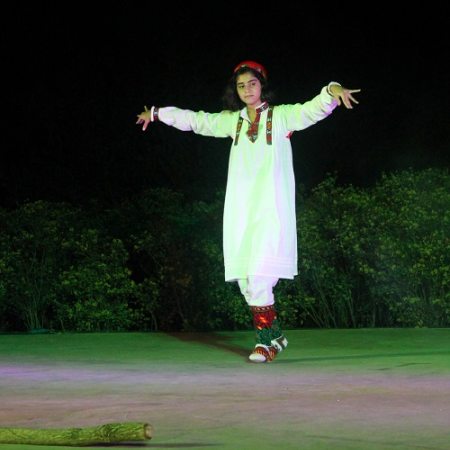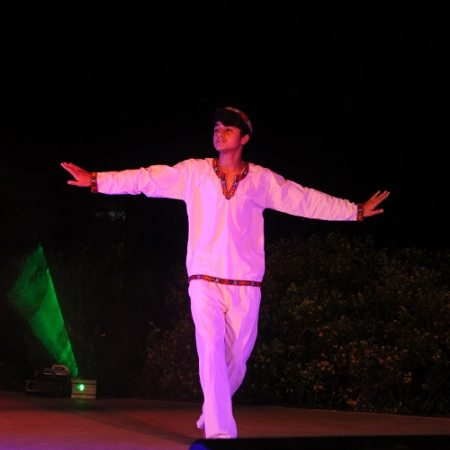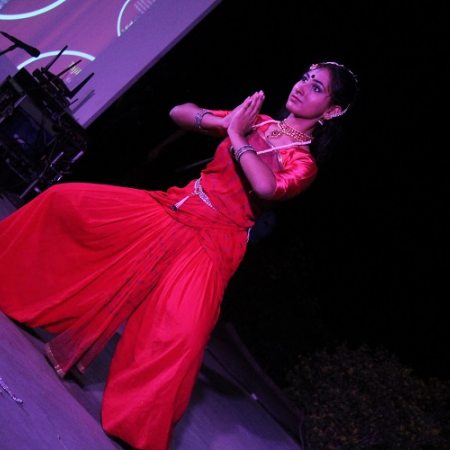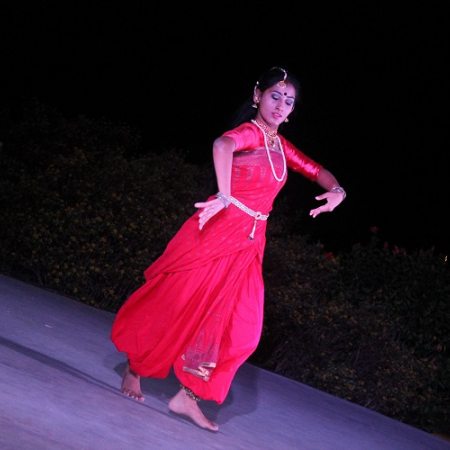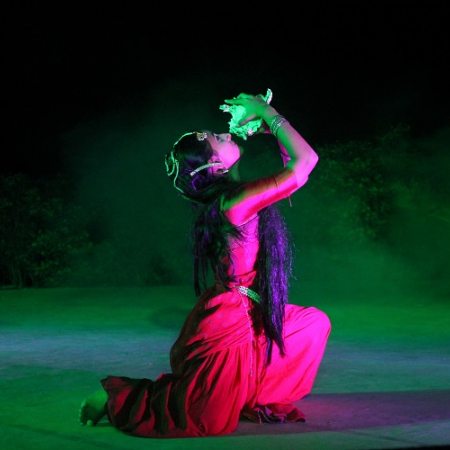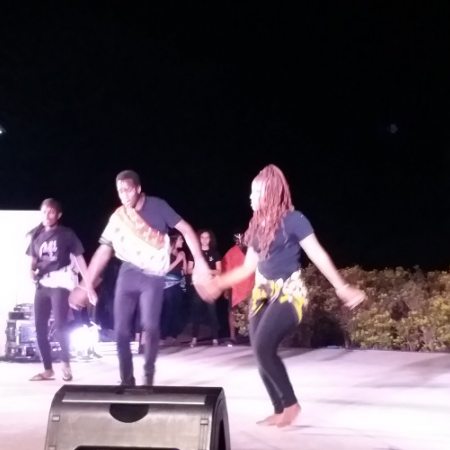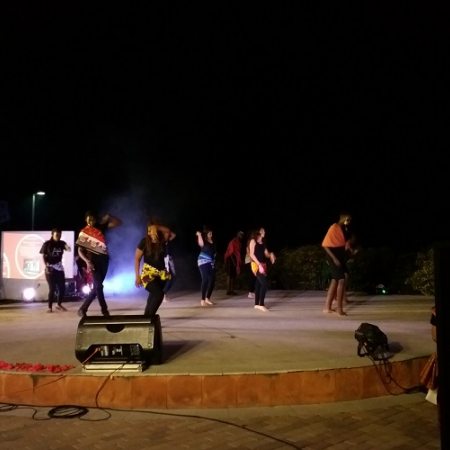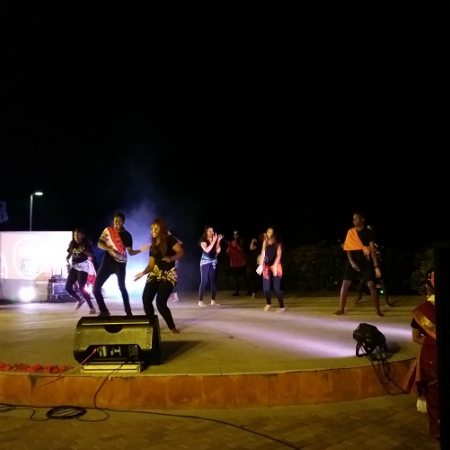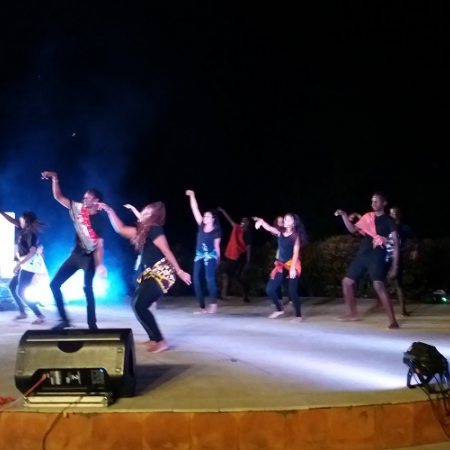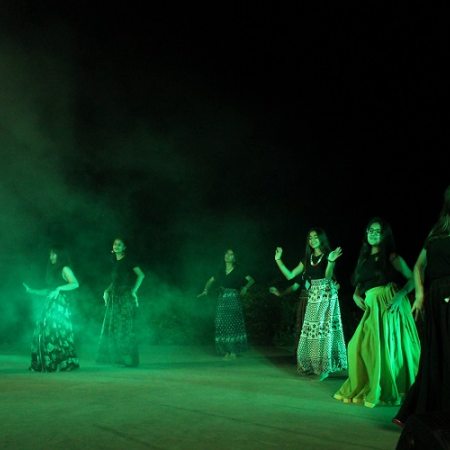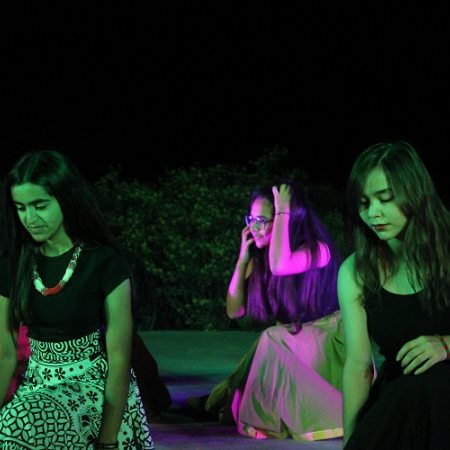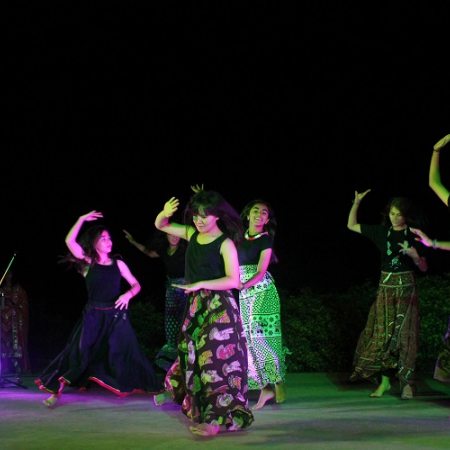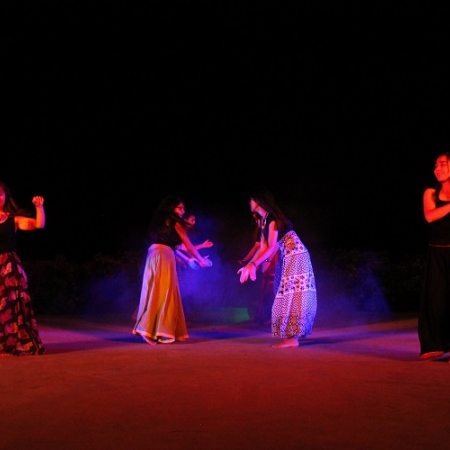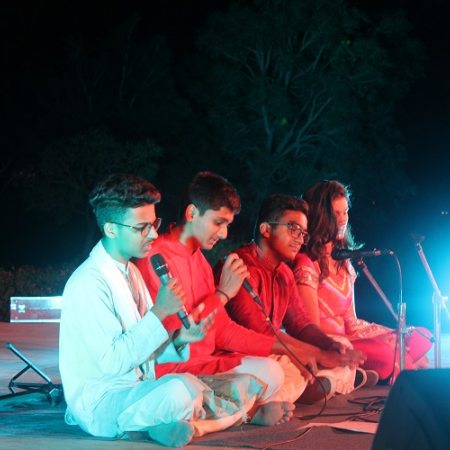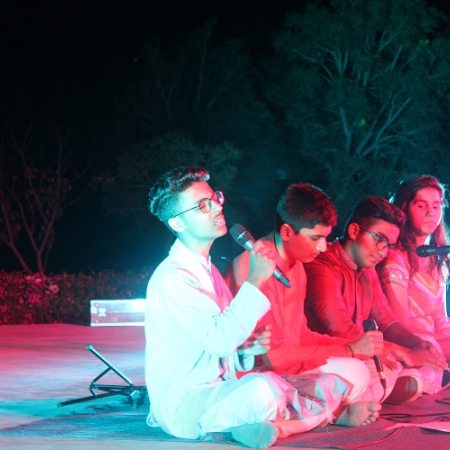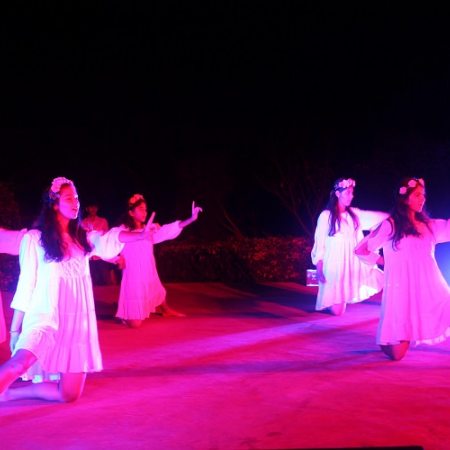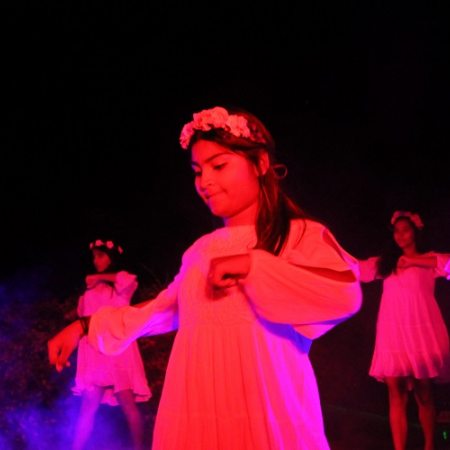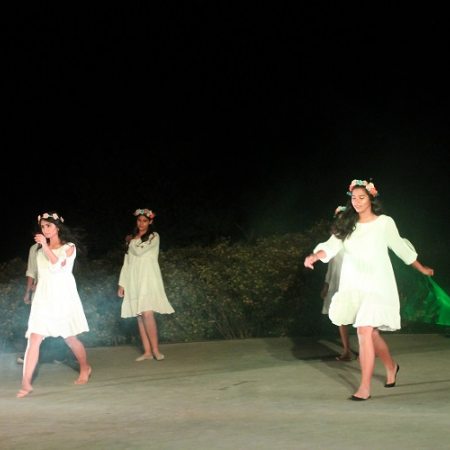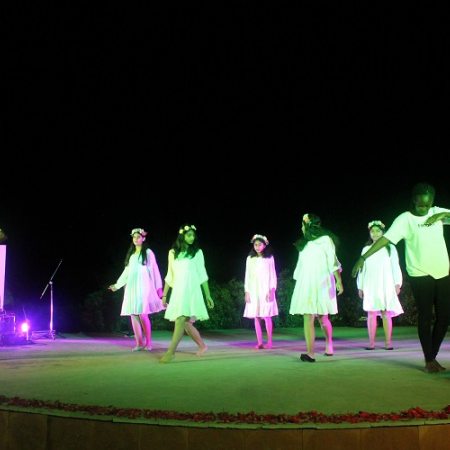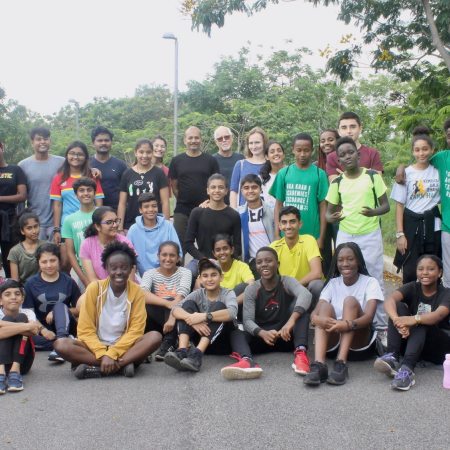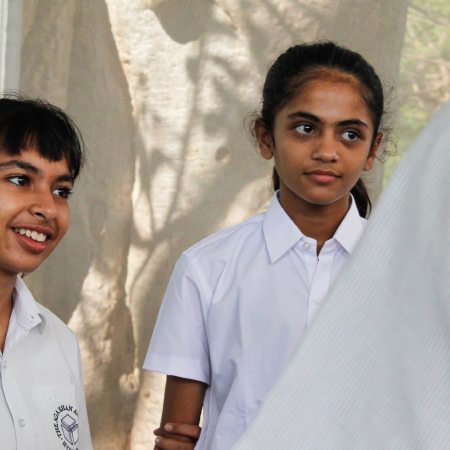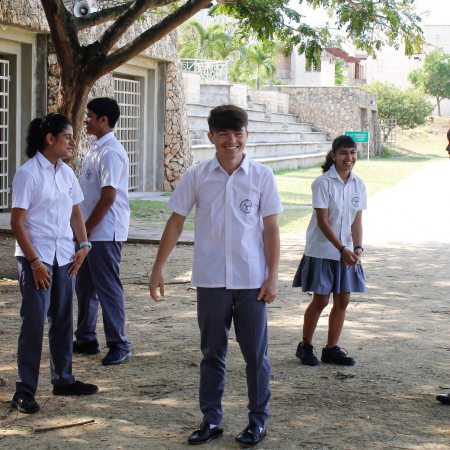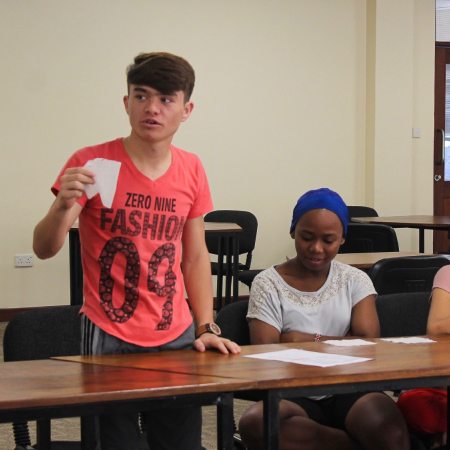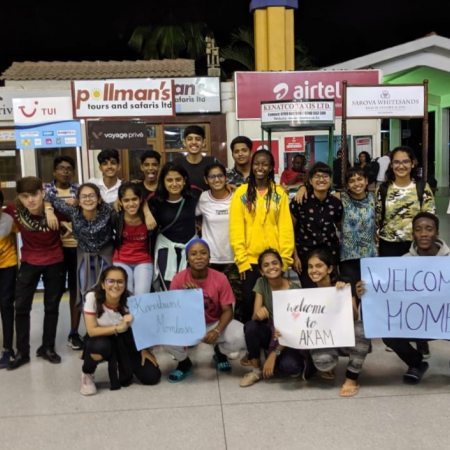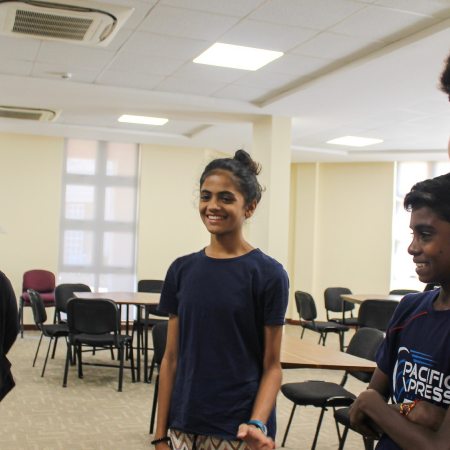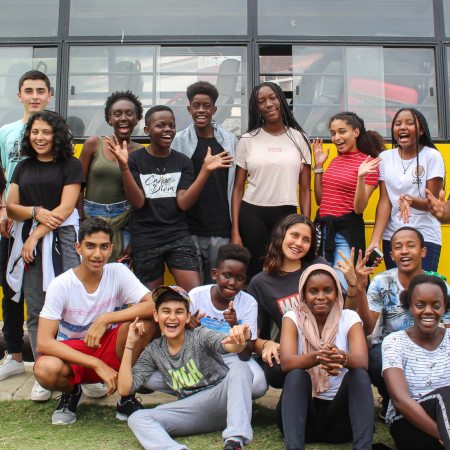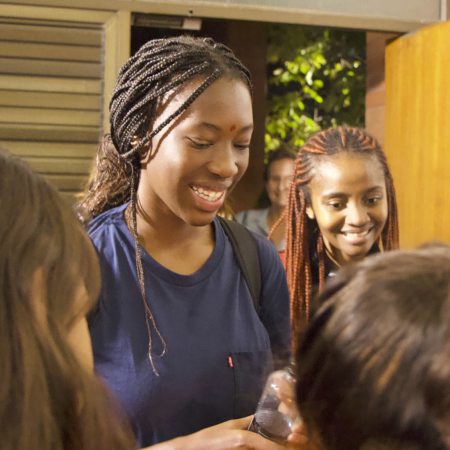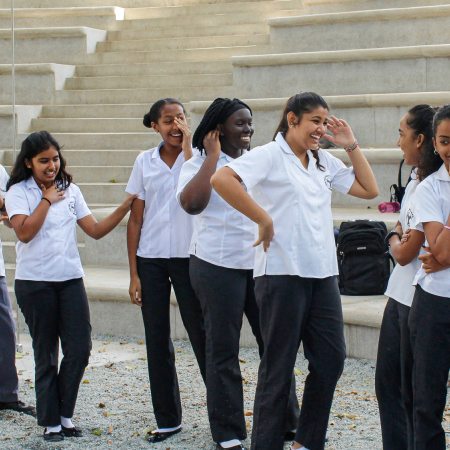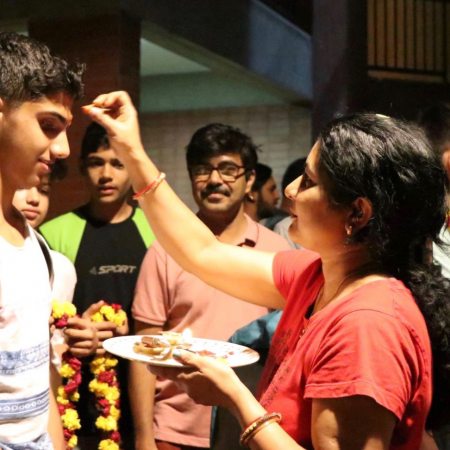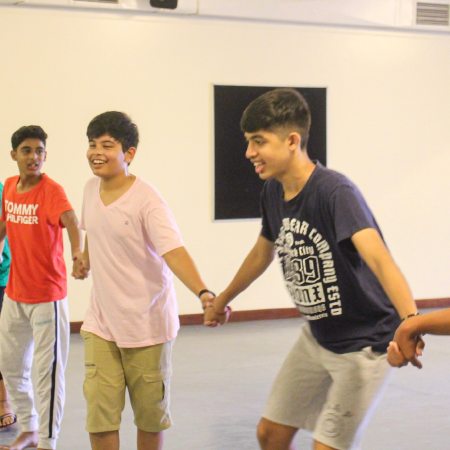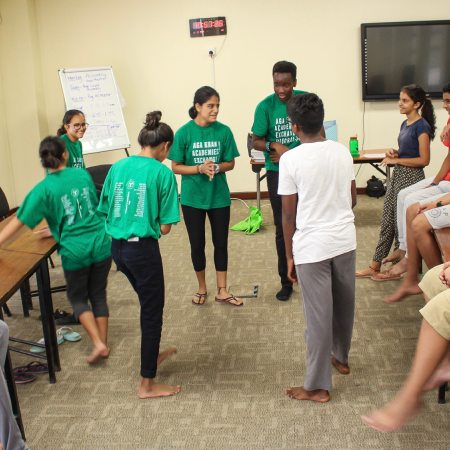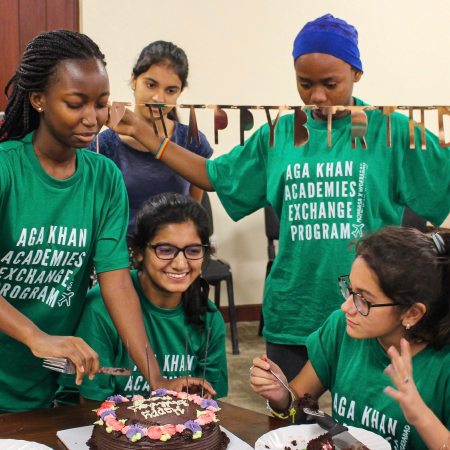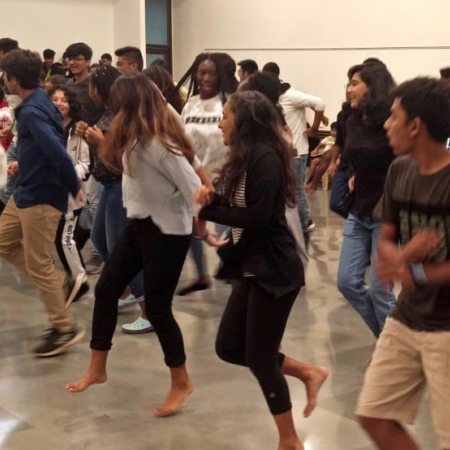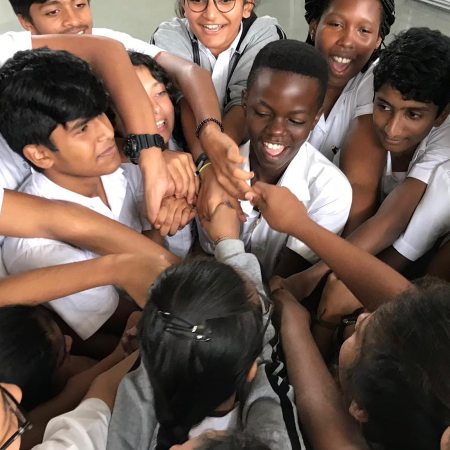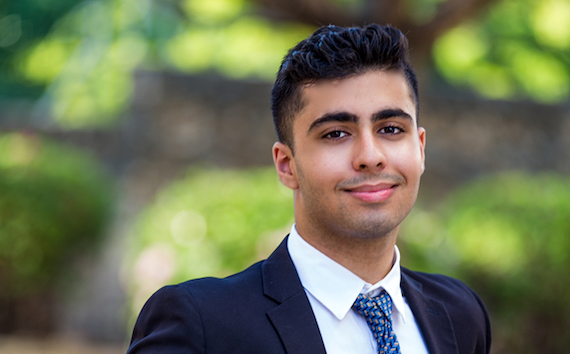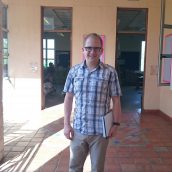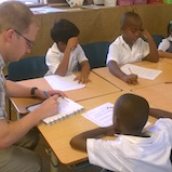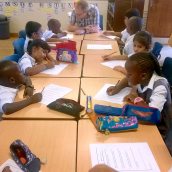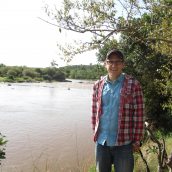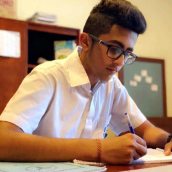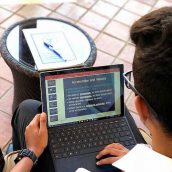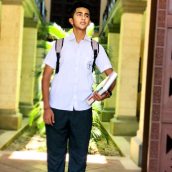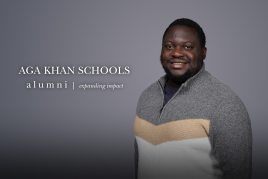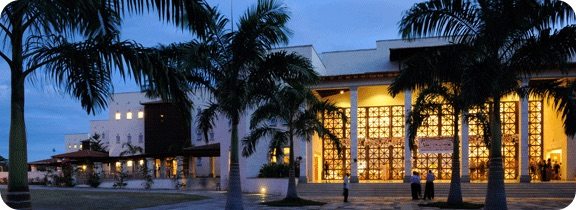
Fee Schedule
Fee Schedule for the 2024-2025 Academic Year.
Please click here to download the 2024-2025 Academic Year Fee Schedule (PDF format)
The above fees are applicable for the Academic year 2024-2025 and are subject to an annual review.
The Tuition fees include course fees, the use of essential course books, library books, co-curricular activities, IT infrastructure, science laboratory equipment, day trips, and certain classroom supplies.
The Residential fee in addition to the tuition fee also includes housing, weekend excursions and activities, laundry, and meals.
Notes
1. Miscellaneous Charges
1.1 Non-Refundable Admission Fee. Payable for students enrolling for the first time. The admission fee must be paid to secure a place for a child in the Academy.
This cannot be deferred or paid in instalments. The due date is one week after the offer has been accepted.
1.2 Refundable Security Deposit. Around 10% of the fees are payable on acceptance of admission and
should be paid together with the admission fee mentioned above. As the Security Deposit is different between
the PYP, MYP and DP, the differential will be invoiced when the child is transferred from PYP to MYP and from
MYP to DP. It is refundable when a student leaves the school as long as the required notice has been given in
writing and “No Dues” clearance is obtained from the Academy. No interest is payable on this deposit.
1.3 Good Faith Deposit. Paid for Grade 1, Grade 11 day students and all residential students to secure their
place, as part payment against their first Semester fee, due to limited capacity. This will have to be paid as soon
as the admission of the student is accepted for new joiners (including Grade 1)students and before 30 April for the
Grade 11 Students. All other residential students will pay the Good Faith deposit together with the Admissions Fee.
In the event that the student does not join the Academy, this deposit will not be refunded.
1.4 Lunch. The rates indicated above are applicable only if paid in advance at least for a whole semester
(50% of the total cost). The daily lunch rate is KES 400 for MYP and DP students and KES 350 for PYP students.
1.5 Medical Insurance Premium. Paid separately by residential students with the first tuition fee instalment.
1.6 Stipend. Paid separately by residential students and will be managed by the Academy. The students will be
able to withdraw a maximum KES 500 per week to cover any personal expenses. Any balance with the Academy will
be paid to the students at the end of the Academic Year.
2. Tuition
2.1 Sibling Discount. 5% is applicable for the second child, 10% for the third child, and 15% for the fourth and subsequent children. The discount will be adjusted according to the number of
children attending the Academy at the same time. This discount is not applicable where a family is receiving financial assistance.
2.2 Tuition Fee. Academic Year 2024-2025 fees are payable in two equal instalments (for each Semester), no later than 15 July 2024
and 15 December 2024.
2.3 Discount of 3% will be given on the tuition fees if paid for the whole year before the deadline (15 July 2024). These discounts
are applicable on the net amount payable after other discounts have been deducted and is not applicable to the families who receive
financial assistance.
2.4 AKDN Discount. AKDN employees, upon confirmation with any of the AKDN agencies, will get the following discount:
20% for residential students and 5% for any day students.
2.5 Currency. The fees can be paid in US dollars or Kenyan Shillings. The US Dollars fees will be indicated on the invoice using the exchange rate at which the banks are buying USD from the Academy. The Academy however reserves the right to change this policy.
3. Late and Outstanding Fees
3.1 A monthly surcharge of 3% will be added to the total outstanding dues older than 30 days.
3.2 If fees are not paid within one month’s period following the deadline, the student will be asked to stay at home or in the residences and will not be allowed to attend classes or participate in the other activities undertaken by the Academy. If the fees for the residential students are not settled within 2 weeks following the student being withdrawn from classes, the school may send the student back home. Any student who is out of classes for over 4 weeks could be asked to withdraw from school.
3.3 The Academy reserves the right to withhold results, school certificates, transcripts, or any other information and/or document until all outstanding dues are settled in full.
4. Financial Assistance
Newly admitted students who demonstrate financial needs can apply for Financial Assistance
through the Admissions office immediately after the admission has been confirmed. All current
students have to submit their applications before 8 March, 2024. An independent Committee is
responsible for reviewing and approving any request for Financial Assistance.
5. Withdrawal
If a student wishes to leave the Academy, three months’ advance notice of withdrawal must be given in writing and if not done the pro-rated three months' fees will be due and payable. School clearance will not be possible until any outstanding dues are settled in full.
6. Other Education-related costs
6.1 Field Trips. Students are expected to participate in compulsory curriculum and bonding trips as well as optional trips, for which the parents will be invoiced separately. Information on these field trips will be shared with parents at least one month in advance.
6.2 Exam fees. MYP and Diploma will be billed separately based on actual fees from the International Baccalaureate Organization (IBO).
6.3 Personal Computer. MYP and DP students are required to own a personal computer that meets minimum performance standards as most of the assignments as well as the communication between the teachers and the students are computer-based. The system should be loaded with either iOS or Windows, MS Office, Internet browser, and Antivirus.
7. General Notes Regarding Payment
7.1 The Academy does not accept cash for fee payments.
7.2 All payments must be made by direct bank deposit, bank transfer, or M-pesa even if payment is made by a third party such as a sponsoring organisation.
7.3 Parents are responsible for ensuring that the fee payments are made into the correct bank account of the Academy. In the unlikely event of any change in the bank account, the changes will be communicated to parents in writing via a hand-delivered letter from the Academy.
7.4 Parents must provide the finance office (mba-bursar@agakhanacademies.org), with a hard or an electronic copy of the proof of payment showing the full name of the student and Student Identification Number as soon as the funds have been transferred for issuance of payment receipt. The absence of this information may delay crediting the fees reflected on your account in our system.
7.5 The above terms and conditions may be modified, or new terms may apply to reflect changes in the law or our services. For further information please contact us at mba-bursar@agakhanacademies.org
8. Note on disclosure and sharing of student-related data and information:
Schools will store and may disclose and share information such as a student's name, address, telephone number, date and place of birth, honours and awards, exam papers and other works of the student, parents’ contact and other details, fees charged and outstanding fees against the student, and dates of attendance with third parties as and where is required for the normal operations of the school. The fees-related information can be shared with third parties to assist the school to collect fees where the payments have been delayed and not made for the services provided as per the above term.
End of Academic Year 2015-16
The Academy announces the formal close of their international academic year on Friday 3rd June 2016. Parent Teacher Meetings (PTM’s) will be available on an individual appointment basis for all parents and families of current students from Thursday 2nd June. Junior School and Senior School secretaries are available to coordinate appointments. Boarding students will be departing with their families at the close of this Academy day. Meals and refreshments will be available in The Commons for all visitors.
Cultural Night – an extravaganza epitomising diversity
The Academy’s annual celebration of culture, diversity and pluralism took place at the amphitheatre on the evening of Saturday 3rd November, with close to 20 outstanding dance, music, poetry and dramatic performances by students and staff. The event was organised by five grade 11 students – Aafreen Prasla, Simran Patel, Nihan Khoja, Rahil Jiwani, and Iliyan Gowlani – as a CAS (Creativity, Activity, Service) project.
Student Exchange 2019: The Journey Begins
The Aga Khan Academies Student Exchange 2019 is fully underway! Over the next three months, 35 students from the Academies in Mombasa and Hyderabad will ‘exchange’ places, beginning a journey of self-disovery in a new environment.
Visit the photo gallery below to see how the exchange students spent their first week, or see the blog post here.
Alqaim Lalani: Graduating from the Academy to write a new chapter
For Alqaim Lalani, his recent graduation from the Aga Khan Academy in Mombasa brings him one step closer to furthering his dream of attaining a deeper understanding of how economics and politics affect a society and the daily life of its inhabitants. Alqaim will attend New York’s Columbia University in the Fall as a prestigious Kluge Scholar, where he plans to major in these subjects.
“I have much appreciation for the interdisciplinary study of economics and politics. These two areas of knowledge really dictate the decisions made by leaders, whether that be on the global stage or an institutional platform,” he states.
Even at this young age, Alqaim has engaged in thoughtful and careful consideration of how economics can help leaders plan to avert an uncertain future in their countries.
“In the world we live in, where natural resources and commodities are increasingly scarce, coupled with a rising population growth, economics to me really seems like a subject that is instrumental in planning ahead for the turbulent times to come,” he states with confidence.
Alqaim says he was accepted in the Columbia Undergraduate Scholars Programme for “his intellectual pursuits, extracurricular achievements, and promise for future.” He says being in a residential programme at the Academy helped him follow a routine and helped him navigate his rigorous workload more effectively. He also relished being a “big brother” to the younger students in the dorm.
Extracurricular activities and public service undertakings are an integral part of the International Baccalaureate Programme (IB) curriculum at the Academies. As part of his public service requirement, Alqaim pioneered a cancer initiative called Tumaini La Maisha (Hope For Life). He started this in 2015 for children battling cancers at the Muhimbili National Hospital in Tanzania. Under this initiative, Alqaim engaged young cancer patients and their parents in arts and crafts activities as part of a healing process and also to raise money for their medical treatment. This initiative is ongoing and has expanded to Kenya and Uganda. The parents and patients make bags and other crafts which are sold to the public.
“My personal involvement with the project is distributing the bags once they are made, marketing the products, making orders for the materials that are used in their production and raising awareness about the severity of pediatric cancer in East Africa.”
Another tenet that the Academy places immense importance on is pluralism. What is Alqaim’s takeaway from this?
“In the first year of the diploma programme at the Academy, I travelled to Rwanda with other history students to learn about the Rwandan Genocide. This is perhaps one of the most memorable experiences I had. At the Academy, we are taught about the importance of pluralism and understanding. Yet, when I went to Rwanda and saw the atrocities of the genocide, it reminded me that everyone does not share these values. It also reminded me how significant my Academy education was in allowing me to become an individual that recognizes the wrongful nature of fear-mongering, propaganda and hate speech that are so pervasive today.”
Alqaim holds dear the many lessons learned at the school. He says they have opened his eyes and transformed his old way of thinking.
“Theory of Knowledge taught me to ask the deeper questions, share my opinion fervently while appreciating and respecting views that may be diametrically opposed from my own. Governance and Civil Society provided a nurturing environment for community service projects such as monetary and marketing support.
Projecting an aura of congeniality, Alqaim says, “At the Academy, I have acquired a greater understanding on the importance of ethical leadership and an enduring commitment to whatever project I undertake.”
Related article: AKA Mombasa Student Builds Social Entrepreneurship Initiative
Sharing practice across oceans
Andrew Jones is a teacher from Ontario, Canada who has spent the past year at the Aga Khan Academy Mombasa, working with the Junior School as part of a teacher secondment partnership between the Aga Khan Academies and the Province of Ontario.
On first arriving at the Academy Andrew said, “I [am] expecting an enriching experience that will allow me to learn about another culture by being immersed in it. I expect to grow as an educator because different settings, both culturally and through the [International Baccalaureate] programme, will allow me to expand my skill set as to how best practices support student learning.” One year later, he reflects on his experience.
Almost two years ago now, I was reading the book, Everyone Can Learn to Ride a Bicycle, by Chris Raschka to my new grade one class in Kitchener, Ontario, Canada. This book helps me encourage my students at the start of the year to continue developing resiliency through adopting a growth mindset by trying new things, taking risks and reflecting on both successes and mistakes. Little did I know, I was not just teaching my students this skill, but I was also going to follow this advice myself.
Ever since I began teaching almost 10 years ago, many changes in my job assignment have sparked a passion for professional learning and development in my teaching practice. Over this year, I have immensely enjoyed this new job working for the Ministry of Education in Ontario on an educational partnership between our government and the Aga Khan Academy Mombasa. I have had the opportunity to grow and learn as both an educator and an individual through my interactions at the Academy and through daily life in Mombasa.
Working at the Aga Khan Academy Mombasa has been an immense opportunity of both professional and personal learning that I am thankful for. I ask myself this very question, “What best teaching practices am I learning about that I should share with Ontario teachers?”
Here are three that I have learned more about since being here.
Building Confident Leaders – Students build their confidence and exude enthusiasm as they try new things and take risks during their participation in a variety of classroom activities, sports galas, enrichment opportunities and Friday assemblies. Students are confident, have strong leadership skills and advocate for equity. Confidence stands out as a defining characteristic of the learners present here in the Junior School.
Promoting Pluralistic Thinking – The Junior School’s demographic is vibrant and diverse, reflective of the Mombasa community’s cultures, religions and backgrounds. Activities at the school, such as the Arts Week performance, continually emphasise appreciation and understanding toward different views and beliefs and encourage students to think pluralistically as they work together.
Dual Language Practices – I have been learning Kiswahili “pole pole” this past year, and I am quite experienced in giving directions to tuk tuks and boda bodas. As I learn a new language, it helps me think about the world in different ways and makes me more pluralistic in my thinking. Likewise, students at the Academy develop academic competency and fluency in both the national language of Kenya, Kiswahili, and the official language of Kenya, English. Additionally, learning similar concepts in two languages allows students to develop pluralistic view points as languages sometimes look at similar ideas in different ways.
I am thankful to explore Kenya’s beauty and diversity, so far from Mount Kenya to the Masai Mara to Mombasa. I continue to grow and to learn and am thankful to the kind and generous Mombasa community that has made my transition to working at the Academy warm and welcoming. I feel very privileged to be working with such a dedicated and caring staff and with phenomenal students.
By Andrew Jones
Sumeya Taquidir: Becoming a dynamic teacher
Sumeya Nemane Ussene Taquidir believes learning is a continuous process and that the Aga Khan Strands help her, as a teacher, to be dynamic and creative.
Sumeya is a year 6 and 7 Middle Years Programme science teacher, who joined the Aga Khan Academies through the Teacher Preparation Programme, which develops new teachers into International Baccalaureate practitioners. She spent a full academic year at the Aga Khan Academy Mombasa as part of her training through the programme before joining the Aga Khan Academy Maputo.
Born in Maputo, Mozambique, Sumeya graduated with a Bachelor’s of Education in science (Physics and Minor Electronic) from the Pedagogical University, Mozambique. She joined the Academies because of their philosophy of education, which engages students actively in the process of learning, and the environment of continuous professional development that helps teachers develop effective teaching methods.
During her time in Mombasa, Sumeya had the opportunity to learn how to improve her teaching skills. When asked what helped her become a more effective teacher, she said it was, “the opportunity to go to the Academy in Mombasa for training, [where] we received support in various areas in order to improve our methodologies of teaching. [The Academy provided] us the opportunity to participate in workshops, online trainings and use online resources.”
Sumeya feels that the most rewarding aspect of teaching is when she sees students applying the Aga Khan (AK) Strands in different ways. The Aga Khan Strands are cross-curricular areas of learning that help students develop dispositions and knowledge required by future leaders. Sumeya recalls, “My special memory from the Academy in Mombasa was my first day of teaching. I was very nervous mainly because I was being observed. The lesson was good, the students were familiar with the learner profile and the AK Strands, therefore, it was easy to deliver the lesson.”
She believes that with the teacher’s incorporation of the AK Strands and the learner profile into lessons, the students are better able to understand why they should respect other cultures and work together.
Although Sumeya knows that teaching is not an easy job at times, she believes that accepting challenges, communicating with students and their parents, and reflecting on teaching helps achieve positive results.
“I think it is important to create an environment with mutual respect, honesty, good relationships, and communication should be a highest priority…My rule as a teacher is to guide the students to build [their] knowledge and provide a safe environment for learning with collaborative work, respect and sharing ideas among them.”
The Academies are designed as residential schools, with many of the Senior School students living on campus. During her time in Mombasa, Sumeya had the opportunity to interact with students in the Academy’s residences, and believes that residential life complements academics and produces leaders. “They can have a different experience living with others of different cultures. They can build the spirit of leadership and they learn to think for themselves."
Teaching is ultimately a two-way process for Sumeya. She explains that she too learns from the unique environment of the Academies and through interaction with students of diverse backgrounds. “I am conscious that learning is a continuous process; every day we learn something new [which] makes me more curious to learn new things. That is why we have to be creative and dynamic teachers.”
By Inaara Gangji
Saifan Aswani: Helping the environment through reflection and determination
Incredible things happen when you slow down. When you take the time to look, listen, watch and reflect. You see the beauty and apparent simplicity in the world around you.
Saifan Aswani, a student at the Aga Khan Academy Mombasa, knows the value of taking the time to appreciate his surroundings. In fact, he says he is “bonded with nature”, and loves to sketch and photograph natural landscapes. His ambitions would see him taking to the skies in the field of aeronautics, bringing his passion for being in nature to another level.
Saifan’s penchant for reflection has instilled in him tremendous gratitude for his current good fortune to be studying at the Academy. He shares his personal journey of growth since arriving in Mombasa from the Congo: “Before I joined, I used to be a student who didn’t work hard and wasn’t independent. Coming to this Academy has changed a lot for me, not only increasing my knowledge of the concepts taught, but also developing self-respect and respect for others.” He continues, “The Academy doesn't only teach theories, but connects the concept to the real life. Living here makes me learn more about cultures as we have students and dorm parents who come from diverse socio-economic backgrounds.”
When you add all this up – a deep sense of reflection, an appreciation for nature and an education designed to support students to connect with others and improving the world around them – it is no wonder that Saifan has recently won an award for his work in the field of environmental studies.
Taking part in the seventh edition of the Golden Climate International Environmental Project Olympiad and representing Kenya and the Academy, Saifan won a gold medal in the agriculture category for his creation of a desalinisation unit.
Saifan first thought of his project idea in 2017 while contemplating the Indian Ocean which graces the shores of Mombasa near the Aga Khan Academy’s campus – he had slowed down, taking the time to look, watch and reflect. As Saifan explains, the salty water of the Indian Ocean can hinder the growth of plants in the surrounding area. Saifan developed a desalinisation unit as a low-cost, eco-friendly solution to this problem. He hopes it will help the local flora and develop more productive agricultural practices.
Compassionate and motivated, Saifan explains that, “The innovation came up as a result of research and investigating local issues surrounding my environment.” He then designed and built the desalinisation unit himself. In the same way that an artist combines simple shapes into a masterpiece, Saifan imaginatively transformed natural processes into a solution with real life applications: “The innovation consists of basic applications I studied in class: evaporation, condensation and solar energy.”
As the youngest participant from his school, he encountered many challenges in creating his award-winning design. The determined and hard-working Saifan recalls sound advice from his supervisor that helped him to persevere: "He told me, ‘I'm not telling you it’s going to be easy. I'm telling you it’s going to be worth it.’"
Throughout his time at the Academy, Saifan has realised that there was more to education than concepts, numbers and exams. As he says, “We are the leaders of the future.” He credits his experience of the past three years at the Academy for instilling in him the discipline of hard work, an appreciation of diverse cultures and the motivation to pursue this responsibility. As he has learned, “There is no elevator to the floor of success. You have to take the stairs!"
By Asif-Aly Penwala
“Creating leaders”: Impact of an Aga Khan Schools education
During his time at the Aga Khan Academy Mombasa, Ham Serunjogi (Class of 2012) – CEO and co-founder of African fintech giant Chipper Cash – realised the importance of staying connected to something larger than himself and giving back to the world. This fuelled his remarkable success, and recently, the Forbes 30 Under 30 honouree was selected to serve as an advisor to the US President on African diaspora engagement.
“A big part of it was that I was in the residential programme,” Ham says. “My roommates and my house parents were a central part of my experience; they practically became family to me.”Originally from Uganda, Ham became a part of the Academy’s residential programme, where students in Grades 6-12 from around the world live on campus and participate in different activities and leadership opportunities.
“The group of friends I had on the floor we lived on,” he continues, “I value those friendships deeply.”
Ham credits his dorm parent, Mr Bardai, as a large part of his amazing experience at the Academy.
“Mr Bardai was absolutely the best and looked out for me,” he said. “We remain close to this day.”
Along with his residential parents, Ham fondly recalls teachers such as Mr Kassam, who incorporated meals in his English lessons as they were described in books the students read in class, which encouraged the kids to bring in their own dishes for a potluck.
“We had a really fun time in class with Mr Kassam.”
Ham also recollects his role as President of the Academy’s Student Representative Council, which allowed him to lead the secondary school students and work closely with his peers and teachers.
“The Academies as a whole aim to instil in their education the notion of creating people who are leaders that can come back and help develop their local communities,” he explains. “The idea of being a net positive contributor to society – that was something I learnt strongly.”
“The more I think back on the ways the Academy made sure we were connected to the community, with the events we did outside of the Academy with other community members, that was a key reminder to not stay in an isolated group of privileged people or with people that aren’t connected to something larger than ourselves,” he explains.
“That really resonated with my time over there.”
From Kampala to Mombasa to Iowa
After completing the International Baccalaureate (IB) Diploma Programme at the Academy, Ham’s journey leaped to another continent when he moved to Iowa in the US to study economics at the prestigious Grinnell College.
He was ready for the adventure, thanking his move to the Academy in Mombasa from his hometown in Kampala, Uganda as an insight into what it is like to move away.
“[My time at the Academy] was the first time in my life I lived away from home,” he says. “It was like a nice trial period before moving further away.”
“I was excited to move to Grinnell, to Iowa, for all the big and small things like seeing snow for the first time,” he reflects. “Just being around a new environment, new culture and a new group of people was very exciting.”
The creation of Chipper Cash
Following his graduation from Grinnell and a two-year stint at Meta (formerly Facebook) came a pivotal stage in Ham’s life. In 2018, he and his co-founder Maijid Moujaled established Chipper Cash, a financial technology, or fintech, company offering several products and services to people in Africa, such as local and cross-border payments, cards, stocks, airtime and data, and bill pay.
“I wanted to make an impact on my local community with what I know best,” Ham says. “I wanted to create a solution that might solve a problem for people in Uganda.”
The CEO met his co-founder at Grinnell, who wanted to create a similar solution for the people of Ghana, where he was originally from.
“It was easy to align our thinking because we wanted to start the company to check some boxes – what needs to be done and where?”
Chipper Cash now has over five million customers operating in countries including Nigeria, Rwanda, Ghana, Uganda and the US. It has been featured in several global financial publications as well as news channels including BBC, CNN, Quartz, Apple and Forbes, in which Ham was named as one of the honourees of the Forbes 30 Under 30 Finance List of 2023.
Serving on the US President’s advisory council
In September 2023, Ham was appointed to serve on the Inaugural President’s Advisory Council on African Diaspora Engagement in the United States. The Advisory Council is tasked to advise the US President on a range of issues, including how to strengthen relations between Africa and the US, promote trade and investment, and build educational exchanges.
“I definitely pinch myself every night just to make sure I’m not dreaming,” he laughs. “If you’d ask me at any point in my life if I would ever be an advisor to the US President, there’s no way I’d have thought that’s possible.”
Ham highlights what he is most excited about for his role as an advisor.
“One, it’s an incredible group of people to be a part of,” he says. “And two, in today’s world, Africa is the fastest growing continent and they’re strong partners with the US. We will help advise the President to form policy and help drive US-African relations and investment further.”
“Policy is going to affect billions of people, and if we do our job well, we’ll make a positive impact on the world. If that’s all I ever do in my life, I’ll be very happy with myself.”
Giving back to the Academy
Ham feels fortunate to be in a position where he can give back to the place that started it all. The alumnus consistently provides the Academy in Mombasa with support by coming back to address graduates, creating videos and content to promote the Academy, or even donating to support current and future students.
“It’s a special place to me,” Ham describes. “I was fortunate enough to give the 2021 graduation commencement address, and the theme of my remarks was the realisation of the opportunities I’ve been lucky to receive, and the best way to repay them is to help repair the world.”
